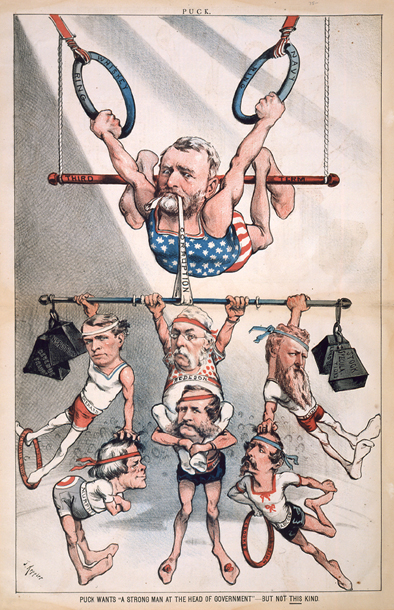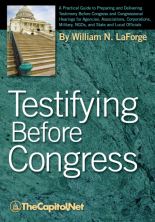From the Congressional Glossary – Including Legislative and Budget Terms
Mid-Term Elections / Casualty List

Mid-term elections / Midterm Elections are the national elections held in November of the even-numbered years between presidential elections. Mid-term election years include 2010, 2014, 2018, 2022, 2026, etc. Presidential elections are held very 4 years, including 2012, 2016, 2020, 2024, 2028, etc.
Federal law (2 U.S.C. § 7) designates the first Tuesday after the first Monday in November, in even-numbered years, as election day for federal offices. Before election day, in each biennial cycle, the major political parties (and perhaps smaller parties) in each state will have held various kinds of conventions, and many states will have held major-party primaries and perhaps runoffs. Nearly all aspects of election administration are the responsibility of the individual states; Congress has not extensively exercised its constitutional authority to regulate federal election administration.
Congressional Elections: Crash Course Government and Politics #6
Members of Congress who are elected in the biennial federal elections begin their congressional service in the next Congress that starts the following January of the following odd-numbered year. For example, new members elected in November 2018, will begin their service in January 2019, in the First Session of the 116th Congress. See Terms and Sessions of Congress.
Members of the House serve two-year terms (Article. I. Section. 2.), while Senators are elected to six-year terms (Article. I. Section. 3.). See Senate Classes: Terms of Service.
The House press gallery maintains on its web site a “casualty list” of members of Congress who are retiring or running for other office in the next election.
Explainer: What Are Midterm Elections?
Also see: Reapportionment / Redistricting; Senate Classes: Terms of Service; Terms and Sessions of Congress; “The seven stages of the office seeker“.
More
- Federal Election Commission (FEC)
- “Election Projections: First Amendment Issues,” CRS Report RS20762 (6-page PDF
 )
) - “Congressional Authority to Standardize National Election Procedures,” CRS Report RL30747 (24-page PDF
 )
) - “House Contested Election Cases: 1933 to 2009,” CRS Report 98-194 (62-page PDF
 )
) - “State Election Laws: Overview of Statutes Regarding Emergency Election Postponement Within the State,” CRS Report RS21942 (8-page PDF
 )
) - “Election of the President and Vice President by Congress: Contingent Election,” CRS Report RS20300 (8-page PDF
 )
) - “Postponement and Rescheduling of Elections to Federal Office,” CRS Report RL32623 (23-page PDF
 )
) - “Procedures for Contested Election Cases in the House of Representatives,” CRS Report RL33780 (30-page PDF
 )
) - “The Federal Contested Elections Act: Overview and Recent Contests in the House of Representatives,” CRS InFocus IF11734 (5-page PDF
 )
) - “Election Reform and Electronic Voting Systems (DREs): Analysis of Security Issues,” CRS Report RL32139 (46-page PDF
 )
) - “Executive Branch Power to Postpone Elections,” CRS Report RL32471 (11-page PDF
 )
) - “Elections Reform: Overview and Issues,” CRS Report RS20898 (37-page PDF
 )
)
Courses
- Congressional Operations Briefing – Capitol Hill Workshop
- Drafting Federal Legislation and Amendments
- Writing for Government and Business: Critical Thinking and Writing
- Custom Training
- Preparing and Delivering Congressional Testimony and Oral Presentations, a Five-Course series on CD
- Congress, the Legislative Process, and the Fundamentals of Lawmaking Series, a Nine-Course series on CD
Publications

Testifying Before Congress |

Pocket Constitution |

Citizen’s Handbook to Influencing Elected Officials: A Guide for Citizen Lobbyists and Grassroots Advocates |

Congressional Procedure |
CongressionalGlossary.com, from TheCapitol.Net
For more than 40 years, TheCapitol.Net and its predecessor, Congressional Quarterly Executive Conferences, have been teaching professionals from government, military, business, and NGOs about the dynamics and operations of the legislative and executive branches and how to work with them.
Our custom on-site and online training, publications, and audio courses include congressional operations, legislative and budget process, communication and advocacy, media and public relations, testifying before Congress, research skills, legislative drafting, critical thinking and writing, and more.
TheCapitol.Net is on the GSA Schedule, MAS, for custom on-site and online training. GSA Contract GS02F0192X
TheCapitol.Net is now owned by the Sunwater Institute.
Teaching how Washington and Congress work ™

